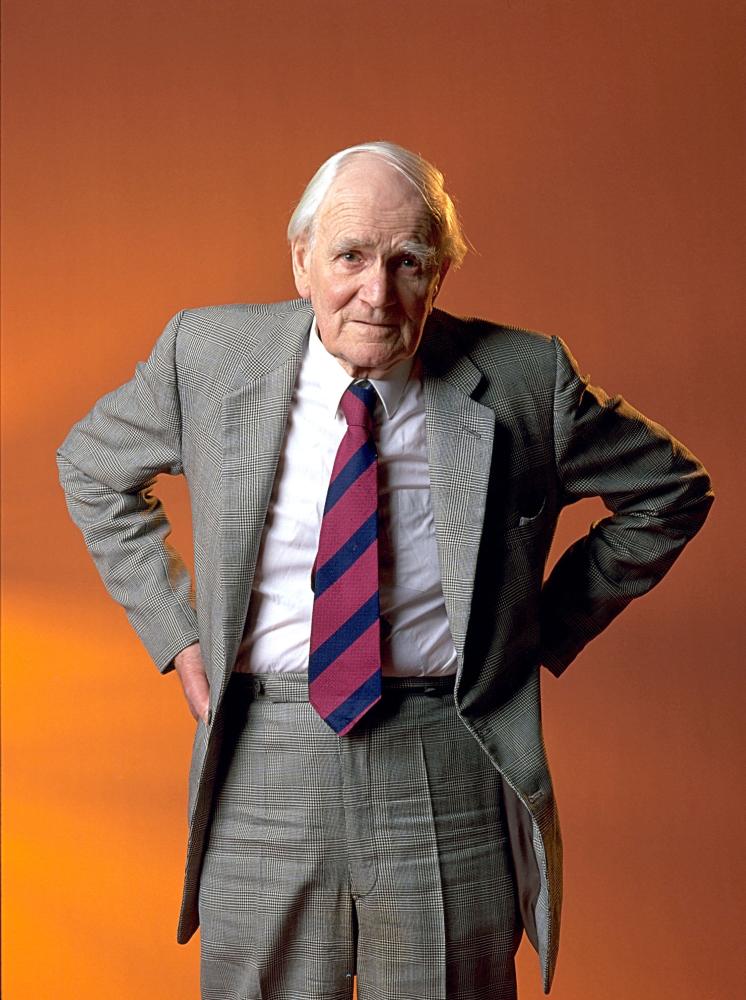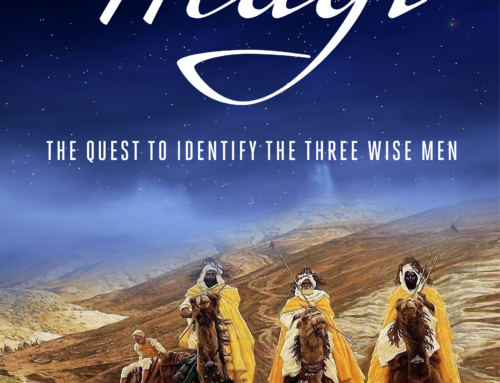Have you ever noticed that modernist Biblical scholars don’t believe in the infallibility of the Bible, but they do believe in the infallibility of their own theories?
The Biblical critics love to get down and pick over the New Testament. They’ve made an industry of it. There’s form criticism and source criticism and literary criticism and historical criticism. While my bias is against the critics, it is good to step back and realize that there are many good scholars doing valuable work. It is (as usual) the extremists who get all the headlines. As Pope Benedict has pointed out, much of their work has been excellent; it’s been done by serious and professional scholars, and we have learned an enormous amount about the Scriptures and their context as a result.
On the other hand, a lot of the work has been sketchy. Great theories have been formulated for which there is no real evidence. Books have been written by authors with a particular viewpoint to convey and particular sums to be made in the sale of books–and they’ve learned that if the results are controversial and undermine the faith, well, they make the news, sell more books and gain a bigger reputation. Far be it from me to suggest that this might be a motivation for such serious and objective scholars! However, it must be a temptation.
One of the favorite theories of the Bible scholars is that the books of the Bible are not really written by the people we think they’re written by. Instead, they were written much later by someone else and people assigned the names of the apostles to them.
This is where the make believe comes in: on the one hand the critics of the Bible say there is no evidence for the historicity of the New Testament. Well, that’s not really true. There is actually an enormous amount of evidence, and with modern forensic archeology there is more evidence every year. We have far more ancient manuscripts for the New Testament than for any other ancient writings. Much of what is in the New Testament is also corroborated by other extra Biblical documentary sources, not to mention geographical and archeological sources. What do the scholars do? They make an industry out of picking those sources apart and showing how they can’t possibly be reliable. No one minds good scholarship and a proper critical method. That’s how we discover the truth in these matters–by testing the hypothesis and double checking the sources. However, when this is done with a negative mindset and atheistic assumptions the results will not only be negative, but ridiculous.
So, for example, we have critics telling us that the gospels were composed from various sources. Matthew and Luke probably used Mark, but they also used other sources–notably one called ‘Q’. What is “Q”? It is allegedly an extra source used by Matthew and Luke. It was mostly sayings of Jesus and it is the source for the material that is common to Luke and Matthew, but not found in Mark. Some scholars think “Q” was a separate, now lost book. Others think it was a collection of Jesus’ sayings. Some think “Q” is just a way to refer to what may have been a whole bundle or extra sources that had been collected by the early church.
However, nobody has ever come up with any real evidence for ‘Q’. There’s no ancient manuscript which matches it. No ancient documents refer to these other source books. No ancient theologians refer to other source books that existed. St Jerome, who translated the Bible into Latin in the fourth century doesn’t know about this mythical source called “Q”.
However, there is evidence from the earliest days in the church of what might be that extra source material. In the early second century Bishop Papias of Hieropolis recorded that St Matthew wrote the first gospel in his own tongue. That would have been Hebrew or Aramaic. The difficulty is the present gospel of Matthew is in Greek. Professor Bauckham has shown that the disciples of rabbis in Jesus’ time kept notes and recorded the teachings of their rabbis. It is very possible that this first version of Matthew’s gospel was written in Aramaic or Hebrew and it was St Matthew’s collection of Jesus’ stories, sayings and actions. This “proto-Matthew” has been lost. However, although St Jerome never refers to the document scholars named “Q” he does claim to have had a copy or at least seen Matthew’s Hebrew/Aramaic gospel. This “proto-Matthew” could very well be the “Q” that scholars propose existed. Why not say so?
Because to claim that there was a proto-Matthew would pull the rug out from the universally accepted idea that Mark’s gospel was the first written. It would also pull the plug on the idea that Matthew was not really written by Matthew, but by somebody else much later. Could it not be the case that there was a proto-Matthew in Hebrew or Aramaic which served as one of the sources for Luke’s gospel, and that there was a later version of Matthew written in Greek which the editor/author composed by using proto-Matthew and Mark as his sources? This would be the present version of Matthew.
This would also account for one of the problems I discovered when writing my book The Mystery of the Magi. Why does Matthew tell the story of the visit of the Magi, the wrath of Herod the Great, the flight into Egypt and the slaughter of the innocents, but Luke doesn’t mention these things in his account of the Nativity? Furthermore why does Matthew tell those stories, but does not include the details of the Nativity unique to Luke? Because Matthew’s Greek gospel is actually the last one written, and he is writing without knowledge of Luke’s gospel.
If there was a proto-Matthew circulating which was the recorded sayings, stories and actions of Jesus, then there may have been various similar collections which the evangelists drew from. In addition, as Bauckham shows in his excellent book, the gospel are reliant on various eyewitness sources. The historical reliability is therefore very sound. Was there some elaboration, adjustment of detail for theological reasons, some errors in detail which got changed in the telling? Sure, there’s no problem in admitting that, but no reason to toss out the historicity completely.
So my question is, “Who or what is this mysterious Q?” There is no need to propose a separate document for which there is no evidence. Proto-Matthew may very well be the underlying source (along with Mark) for both Luke and Greek Matthew.
Why do we need all the speculation of the critics, while they ignore and dismiss the actual witnesses from the very earliest days of the church? Papias and Irenaeus and the vast majority of apostolic fathers all say the gospels were written by Matthew, Mark, Luke and John and that they were written in that order. Why dismiss the historical witnesses we do have, while summoning up in one’s imagination all sorts of “solutions” that are totally imaginary? We’re supposed to believe the speculations of scholars 2000 years removed from the events but dismiss as so much hokum the scholars who were only 100 years from the event?
Come now.
We’re supposed to believe that some anonymous fellows around 90 AD sat down and composed the gospels and put Matthew, Mark, Luke and John’s names on them. I realize this was done with the gnostic gospels some two hundred years later, but just sixty years after the events of the gospel people were forging gospels? There were still people alive who had witnessed the events in question.
Ancient history is full of events and people. Lots was happening. There were heretics and sects and schisms and councils and popes and bishops and monks and hermits and missionaries and martyrs. There were poets and theologians and scholars writing and debating. But where are these fellows who wrote and edited the gospels and put Matthew, Mark and Luke’s name on them? Why didn’t any of the apostolic fathers mention them?
Oh, I know, they kept themselves secret because the work they were doing was fraudulent! Uh huh.
Much more likely that there was a “proto-Matthew” written in Aramaic or Greek and that Mark and Luke wrote their gospels after that, and Matthew himself (or someone from his retinue) edited and composed the Greek version of Matthew’s gospel drawing on Mark. No need to dream up some fictional “Q” document or theories about anonymous authors writing under the names of the evangelists.







I am in a masters of theology program at a Catholic university right now. I have to say, the biblical courses I have taken so far have been spiritual position. The theories of Catholic “historical-critical” scholars of the 70s-90s are presented as incontrovertible. The Gospels were written late by unknown authors and almost none of the material contained in them actually happened. Almost all of it was made up after the fact by people who never saw or knew Jesus. Benedict XVI’s “Jesus of Nazareth” series is derided as not reflecting “real” biblical scholarship since he dares to examine the Gospels through the lens of faith rather than from a cold hard “scientific” point of view. The newer generation of Catholic biblical scholars who dare to question the “dogmas” of Raymond Brown, et al (such as Scott Hahn, Brandt Pitre, John Bergsma) are ridiculed. Any attempt to harmonize the Gospels is seen as fundamentalist and therefore unworthy of a “scholar.” It’s very disheartening.
This is very interesting, but not surprising. The whole enterprise is soiled with special pleading, huge red herrings, straw men and enormous bias. This is made worse by blacklisting, careerism, mocking, ad hominem attacks and the most arrogance and hubris I have ever encountered. The deliberately ignore, sideline and dismiss perfectly legitimate scholars if they do not toe the party line. As you have pointed out, the basic assumption is wrong. They approach it “scientifically” and while that is one legitimate approach it is neither the only approach nor the best one.
One of the most interesting commentators on this is the historical novelist Anne Rice–whose whole career is historical research. She couldn’t believe the close mindedness, arrogance and downright idiocy of the Biblical critics when it came to historical research. She went into the research for her Jesus novels expecting to find nothing worthwhile and was bowled over by the amount of information that was available about first century times in the Roman Empire. Shame on them all. They will be so surprised when they find their millstones for having destroyed the faith of so many.
An example of the kind of thing that really drove me over the edge:
Raymond Brown dismisses the idea that the canticles in Luke’s infancy narrative were composed and sung by those to whom they are attributed as being “pre-critical,” “naive” and having “no serious scholarly support.” Birth of the Messiah, 346. Rather, they were made up in a completely different context, and were merely adopted and adapted by “Luke” and “attributed” to Zechariah (the Benedictus), Mary (the Magnificat), and Simeon (the Nunc Dimmitis) in order to “vocalize the type of piety that one might expect” of them. Id., 348. I guess I am just an old fundamentalist. I get hung where Scripture says: “And Mary said . . .” (Lk 1:46), “Zechariah . . . prophesied, saying . . .” (Lk 1:67); and “Simeon blessed them and said” (Lk 2:34). I find it the height of hubris for a biblical scholar writing 2,000 year later to “authoritatively” declare that Mary, Zechariah and Simeon never said the words recorded as theirs in Scripture and to label those who believe they did as adhering to a hopelessly “naive hypothesis” (Birth of the Messiah, 346).
I agree generally with your skepticism of the skeptics, but it could be a case of “Both-and” rather than “either-or”. The language of the Magnificat, Benedictus and Nunc Dimittis echoes the psalms and canticles of the Old Testament. Magnificat actually quotes bits from Miriam’s song and Hannah’s song in the Old Testament. Mary, Simeon and Zechariah–having memorized many of the psalms and canticles would have known these passages so, while they may not have composed these three songs from scratch, it is probable that they spoke or sang these already established and traditional songs or phrases. So Mary, Simeon and Zechariah did not compose them as such, but neither were they simply inserted into the text by Matthew and Luke. The truth is probably somewhere in between. So, in a moment of joy I might say or sing, “Praise the Lord!” and my biographer later might write, “At this point Fr Longenecker burst into song and sang, “O Praise Ye the Lord, Praise Him in the Height!” He wouldn’t be wrong in recoding that, but he also wouldn’t be 100% factual.
Totally agree. In fact, I wrote a paper that proposed that almost every phrase of the Magnificat is a quote from or allusion to the Old Testament, and that it is entirely plausible that Mary knew the Scriptures well enough to sing it, especially given the involvement of the Holy Spirit. In other words, in the Magnificat we have Scripture that is composed almost entirely from Scripture.